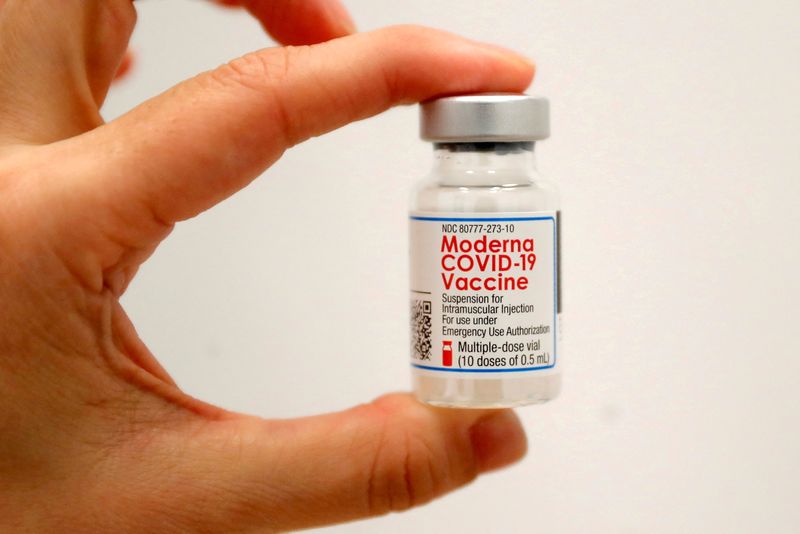SYDNEY (Reuters) - U.S. drugmaker Moderna (NASDAQ:MRNA) Inc will produce millions of mRNA vaccines a year in Australia after agreeing to set up one of its largest manufacturing facilities outside the United States and Europe.
The deal, a second such commitment in Asia Pacific by a western mRNA vaccine developer, underscores efforts by governments around the world to build up local production and prepare for future pandemic threats after limited early access to shots led to slow COVID-19 vaccine rollouts.
Australian Prime Minister Scott Morrison said the plant in Victoria state was expected to produce up to 100 million mRNA vaccine doses every year when it begins operations in 2024.
"By advancing with this new partnership, we are building ... our sovereign capability to manufacture these vaccines here in Australia," Morrison told reporters in Melbourne.
Morrison did not specify the financial details of the agreement but Australian media reported the deal could be worth about A$2 billion ($1.43 billion).
Moderna said in October it planned to invest up to $500 million to build a factory in Africa to make up to 500 million doses of mRNA vaccines each year, including its COVID-19 shot.
COVID-19 vaccines developed by Moderna and Pfizer/BioNTech use mRNA - messenger ribonucleic acid - technology that teaches cells how to make a protein that triggers an immune response. The technology can also be used to manufacture vaccines for other respiratory illnesses and seasonal flu.
BioNtech announced a plan in May to set up a new factory in Singapore that will have an estimated annual capacity of several hundred million doses of its mRNA vaccines once it is operational in 2023.
South Korea, which has a deal with Moderna to provide bottling work for the U.S. firm's COVID-19 vaccine, is also seeking to attract mRNA vaccine makers to start local production.
The announcement by Moderna was made as Australia's New South Wales state, home to Sydney, reported its biggest daily rise in COVID-19 cases since a nearly four-month lockdown ended in early October.
Despite the surge in new infections, officials said a planned easing of restrictions in Sydney from Wednesday will proceed as they urged people to get their booster shots to ward off the Omicron threat.
Australia has inoculated nearly 90% of its population above 16 with two doses and shortened the wait time for a booster shot after the emergence of the Omicron cases.

The country has recorded about 232,700 cases and 2,113 deaths since the pandemic began.
($1 = 1.4027 Australian dollars)